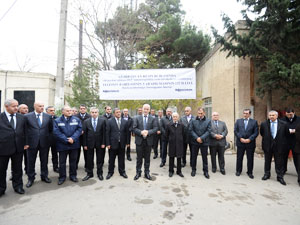



Date:08/08/11
 Service providers could see significant strain put on their networks during the Olympic Games as the world's broadcasters converge on London to cover the event, Geo Networks told Total Telecom on Thursday.
Service providers could see significant strain put on their networks during the Olympic Games as the world's broadcasters converge on London to cover the event, Geo Networks told Total Telecom on Thursday.
"The heaviest use, I expect, will be the broadcasters – customers like ITV," Mike Ainger, chief operating officer for Geo Networks, told Total Telecom. "Those are the kind of critical content providers that'll see problems during the Olympics." Ainger said the event will be the most demanding in terms of capacity usage in the last three-to-four years. The last major global sporting events - the South Africa World Cup and the Vancouver Winter Olympics - were transmitted in compressed HD or SD (standard definition), he explained. "Moving to native HD in 2012 will represent at least a 10x increase [in data traffic] compared to these events."
The potential cost to broadcasters could easily become problematic. "Broadcasters are the most demanding clients for capacity," Ainger explained. "Any customer that was paying for capacity or usage may find themselves in a predicament." To avoid this issue, Geo Networks advises organisations to plan ahead and choose a network provider that will be as prepared as possible for the strain. "The biggest stress people should worry about is whether their service provider will need to reorganise their networks," Ainger added. During the event providers will be unable to run regular maintenance or lay any new cables. Emergency repairs, to rectify breaks and damages, will be allowed, assured Ainger.
"Networks have no need to worry about the service crashing," he said. Geo Networks provides fibre networks to clients such as ITV, TalkTalk, and BlueSquare. In London it deploys its optical network in the city's Victorian sewers.
Networks to face huge strain during Olympics – Geo
 Service providers could see significant strain put on their networks during the Olympic Games as the world's broadcasters converge on London to cover the event, Geo Networks told Total Telecom on Thursday.
Service providers could see significant strain put on their networks during the Olympic Games as the world's broadcasters converge on London to cover the event, Geo Networks told Total Telecom on Thursday."The heaviest use, I expect, will be the broadcasters – customers like ITV," Mike Ainger, chief operating officer for Geo Networks, told Total Telecom. "Those are the kind of critical content providers that'll see problems during the Olympics." Ainger said the event will be the most demanding in terms of capacity usage in the last three-to-four years. The last major global sporting events - the South Africa World Cup and the Vancouver Winter Olympics - were transmitted in compressed HD or SD (standard definition), he explained. "Moving to native HD in 2012 will represent at least a 10x increase [in data traffic] compared to these events."
The potential cost to broadcasters could easily become problematic. "Broadcasters are the most demanding clients for capacity," Ainger explained. "Any customer that was paying for capacity or usage may find themselves in a predicament." To avoid this issue, Geo Networks advises organisations to plan ahead and choose a network provider that will be as prepared as possible for the strain. "The biggest stress people should worry about is whether their service provider will need to reorganise their networks," Ainger added. During the event providers will be unable to run regular maintenance or lay any new cables. Emergency repairs, to rectify breaks and damages, will be allowed, assured Ainger.
"Networks have no need to worry about the service crashing," he said. Geo Networks provides fibre networks to clients such as ITV, TalkTalk, and BlueSquare. In London it deploys its optical network in the city's Victorian sewers.
Views: 899
©ictnews.az. All rights reserved.Similar news
- 24% of U.S. Adults have made phone calls on the Internet
- UNESCO puts sustainable learning online
- Australia gives incentives for the use of telehealth
- US launches computer programme for poor kids
- UN declares web access as human right
- Facebook growth slows in stalkerbase heartlands
- One Third of Millionaires Use Social Media
- Facebook Seeks Bigger Role in Software for Mobile Apps
- Icann increases web domain suffixes
- IBM launches new social networking platform for enterprises
- Google Notches One Billion Unique Visitors Per Month
- Internet providers cut international channel renting costs by 60%
- Azerbaijan launches standard time on internet
- Icann launches facility to ease DNSSec adoption
- Social network data mining yields worrying results for traditional media





















